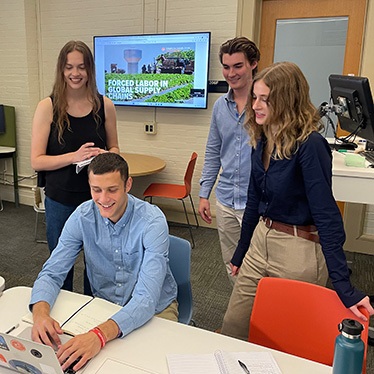Learning but not Earning? The Impact of Job Corps Training for Hispanic Youths
Alfonso Flores-Lagunes, Arturo Gonzalez & Todd C. Neumann
Economic Inquiry, June 2010
The National Job Corps Study (NJCS) was a four-year longitudinal social experiment that randomized over 15,000 Job Corps eligible applicants into treatment and control groups. Experimental estimators revealed a positive impact of Job Corps training in the weekly earnings of white and black youths 48 months after randomization, but not for Hispanic youths.
This study considers explanations for why Job Corps does not increase the earnings of Hispanics in the NJCS. First, the authors show that the randomization in the NJCS did not create comparable treatment and control groups for Hispanics. They then apply alternative estimators that adjust for systematic differences in observable and time-invariant characteristics, but still find statistically insignificant effects of Job Corps 48 months after randomization.
Finally, the authors estimate the "net treatment effect" controlling for post-treatment experience to advance an explanation for why Job Corps fails to benefit Hispanics 48 months after randomization: non-treated Hispanics earn a significant amount of labor market experience during the study compared to all other groups. This higher level of experience translates into higher earnings that Hispanic treated individuals are not able to overcome by the end of the study, despite having higher earnings growth in the 48-month period of any group.
Related News
School News

Nov 17, 2025
Commentary

Oct 20, 2025
Commentary

Oct 10, 2025
